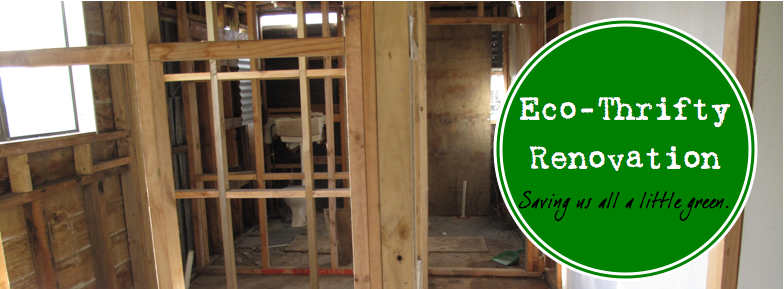I have spent most of my adult life in front of a blackboard
or behind a garden hoe. I was lucky enough to have worked for 14 years at one
of the best schools in America for students with learning differences, and to
have worked my own 38 acres of forest and (poor) farmland for eight years. Each
of these endeavours – most teachers and farmers will tell you – can be a fairly
isolating.
Farmers, obviously, spend most of their time surrounded by
(pick any that apply): grass – stock – grains – veges – broken machinery –
manure – debt. Teachers, on the other hand, are almost always surrounded with
human beings. Paradoxically, many teachers often feel isolated because they
spend very little time working with other teachers to improve their teaching
practice as they are so busy preparing lessons, delivering lessons, and marking
papers.
For me, add the experiences of writing a doctoral
dissertation over the last four years and you might call me a regular hermit.
But our Eco-Thrifty Renovation project has gotten me active in a community for the first time. During the three years of our
renovation and education outreach I’ve met hundreds of Whanganui residents I
would not otherwise have met, and partnered with dozens of local organizations,
businesses, schools, individuals, whanau, and even artists.
The operational model for The ECO School takes its
inspiration from nature. Specifically, this means our work is holistic,
cooperative and adaptive. So you will imagine my pleasant surprise when I met
another organization in Whangnaui with a similar philosophy: Central2Health.
What follows is one of those stories that makes Whanganui…well, Whanganui.
Last May, Carla Langmead contacted me for a home energy
audit through Project HEAT. During my visit, we got to chatting – as you do –
and she told me I should meet Terry Cunniffe, and look into joining
Central2Health, which, by the way, had a meeting that week.
I contacted Terry, who invited me to the meeting. I told him
that I was on bubs duty at that time. He said bring her along. This positive
sign was reinforced by another when I walked into the meeting with 10-month old
Verti under my arm, and Patricia Osborn – a stranger at the time but now a
friend – swooped bubba up for a cuddle.
I could tell these were my kind of people not only because
they love babies, but also because they believe in holistic approaches to
health. Having worked with Sharon Duff of the organization-formerly-known-as
WRPHO, I’ve learned that more people are drawn to issues of ‘health’ than issues
of sustainability. From a holistic perspective, of course, they go
hand-in-hand. What makes a healthy environment also makes healthy human beings.
For example, our warm, dry, low-energy home is a healthy
home. As such, it aids the health of its
inhabitants, the health of the planet, and the health of our family budget.
This type of win-win-win situation is made possible by eco-design, and
eco-design can be applied to all aspects of human culture. For example, a
business can save resources, save money, and promote its public image
simultaneously. Some might call this the definition of a healthy
business.
In an attempt to support small business in Whanganui, I am
developing a sustainability certification – a ‘Green Tick’ – that will ensure
customers that certified businesses have addressed issues such as waste
minimization and energy efficiency. The scheme will be unveiled at the upcoming
Central2Health event held at Meteor Design & OPD in Ridgway Street, Tuesday
12 November. The event runs from 2 until past 6, with the Green Tick explained
at 5:30.
Central2Health consists of ergonomics consultants (Terry, as
well as Clive Williams), a wellness coach (Carla), a clinical therapist
(Patricia), a physiotherapist (Julia Craig), and me, sustainability consultant.


IICIE has launched the Certified Business Innovation Manager (CBIM) Certification. This certification is aimed at providing a global standard for Innovation training and ensuring that a specific set of methodologies are implemented in any Innovation Eco-system.
ReplyDeleteThere is a chance you're qualified for a new solar energy program.
ReplyDeleteClick here and find out if you are eligble now!